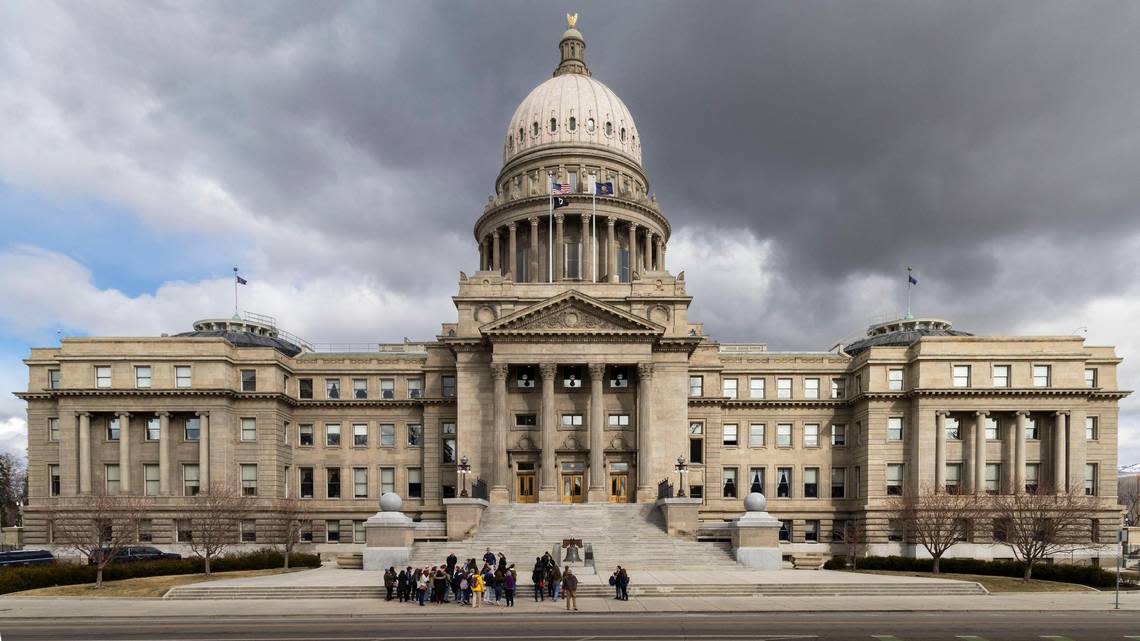The Open Primaries Initiative could get Idaho out of a two-party system of animosity | Opinion

The Open Primaries Initiative plans to turn in signatures to qualify for the ballot today.
It’s a day worth celebrating because it means Idahoans have a chance to choose. And it’s worth celebrating because it offers a way out of the broken two-party system in Idaho.
The initiative would change primary elections to an open primary, where voters, regardless of their political party, could back whatever candidate they want, as had been traditional in Idaho up until 2011. The top four vote-getters, regardless of party, would advance to the general election. Then, in the general election, voters could back whichever candidate they want, then rank the remaining candidates in order of preference. If your favorite candidate is eliminated, your vote goes to your second choice, then your third choice, and so on.
There has been a vigorous propaganda campaign against the initiative, almost exclusively from those closely linked to the Idaho GOP.
It isn’t surprising that dominant parties don’t like ranked-choice voting. (Here in Idaho, the main opposition has come from the GOP, but in Democratic-dominated Washington and California, you have Democrats arguing against ranked choice in exactly the same way.)
This is predictable. When you’re the primary beneficiary of a system that divides the population into two warring factions, you don’t want to see that system undermined.
But what’s good for the dominant political party often isn’t what’s good for ordinary people.
When it comes to policy, Idahoans like consensus. They like taking care of one another. They want their kids, and their neighbors’ kids, to have a good education. They want freedom to live their lives without being ordered around.
The party wants power, and no matter how much it has, it’s never enough.
Both the recent revival of the initiative process and the introduction of open primaries and ranked-choice voting promise to make policy and problem-solving the focus of the political system. That’s something many in the GOP can’t tolerate, not because it isn’t conservative but because it means the Republican Party becomes less important.
“All political power is inherent in the people,” declares the Idaho Constitution. “Government is instituted for their equal protection and benefit, and they have the right to alter, reform or abolish the same whenever they may deem it necessary.”
There’s no mention of political parties there. They have no right to any power.
In fact, political parties are mentioned in only two sections of the Idaho Constitution, and in each case, it’s to limit their power. Article VI, Section 7 says judges are not to be affiliated with a political party, and Article VII, Section 12 ensures that no party will have a majority on the state Tax Commission.
Parties are a secondary creature — it would be entirely possible for the government created by the Idaho Constitution to function if they didn’t even exist — and they have not shown themselves to be especially productive or useful.
And people don’t like them. Our politics are mainly negatively polarized, meaning people don’t much like their own party, but they really hate the other party.
In national polls, just under 60% of Americans view each political party negatively. About two-thirds of Americans have consistently said they want a third party.
So why make the two parties the defining poles of our politics?
The initiative process has, in recent years, shown what politics beyond the system of partisan animosity looks like. Without the us-versus-them polarization, when people don’t care about team red and team blue, Idaho’s politics look much different and much better. There’s more kindness. There’s more care for others.
Tens of thousands of Idahoans have been pulled out of the Medicaid gap, not by elected officials who never proved equal to the problem, but by Idaho voters, who supported Medicaid expansion by a greater margin than just about any elected official. The threat of another initiative pressured politicians into taking major steps to increase funding for public education after years of inaction. Look back in history, and an initiative is to thank for the Sunshine Law that allows the public to know how candidates and parties get their money.
This initiative could be more important than any of those because it promises to change the way elected officials are selected. That could let the thoroughly broken part of our politics, the part built on division and mutual spite, work more like the small part that works well.
Here’s hoping the Open Primaries Initiative succeeds.
Bryan Clark is an opinion writer for the Idaho Statesman.


